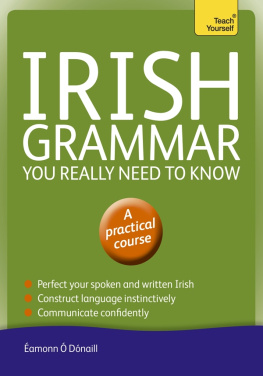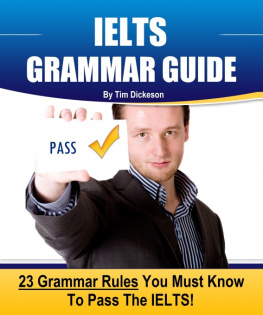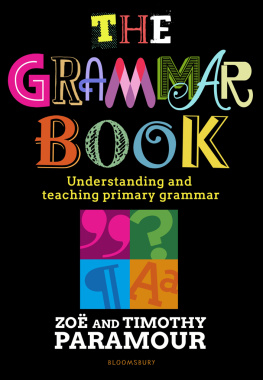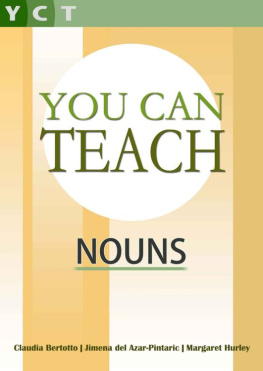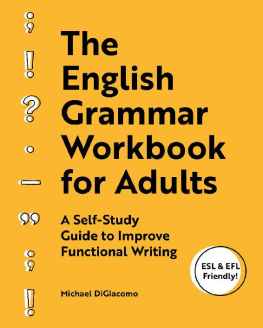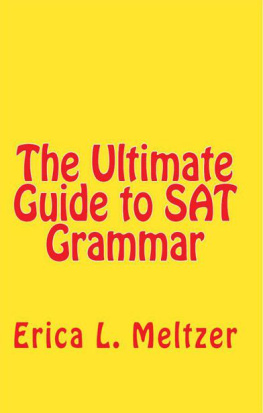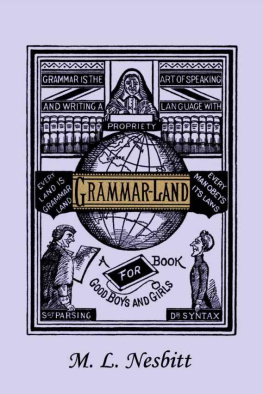DiGiacomo - Everything Your GRAMMAR BOOK Didnt Teach You
Here you can read online DiGiacomo - Everything Your GRAMMAR BOOK Didnt Teach You full text of the book (entire story) in english for free. Download pdf and epub, get meaning, cover and reviews about this ebook. year: 2019, genre: Children. Description of the work, (preface) as well as reviews are available. Best literature library LitArk.com created for fans of good reading and offers a wide selection of genres:
Romance novel
Science fiction
Adventure
Detective
Science
History
Home and family
Prose
Art
Politics
Computer
Non-fiction
Religion
Business
Children
Humor
Choose a favorite category and find really read worthwhile books. Enjoy immersion in the world of imagination, feel the emotions of the characters or learn something new for yourself, make an fascinating discovery.

Everything Your GRAMMAR BOOK Didnt Teach You: summary, description and annotation
We offer to read an annotation, description, summary or preface (depends on what the author of the book "Everything Your GRAMMAR BOOK Didnt Teach You" wrote himself). If you haven't found the necessary information about the book — write in the comments, we will try to find it.
DiGiacomo: author's other books
Who wrote Everything Your GRAMMAR BOOK Didnt Teach You? Find out the surname, the name of the author of the book and a list of all author's works by series.
Everything Your GRAMMAR BOOK Didnt Teach You — read online for free the complete book (whole text) full work
Below is the text of the book, divided by pages. System saving the place of the last page read, allows you to conveniently read the book "Everything Your GRAMMAR BOOK Didnt Teach You" online for free, without having to search again every time where you left off. Put a bookmark, and you can go to the page where you finished reading at any time.
Font size:
Interval:
Bookmark:
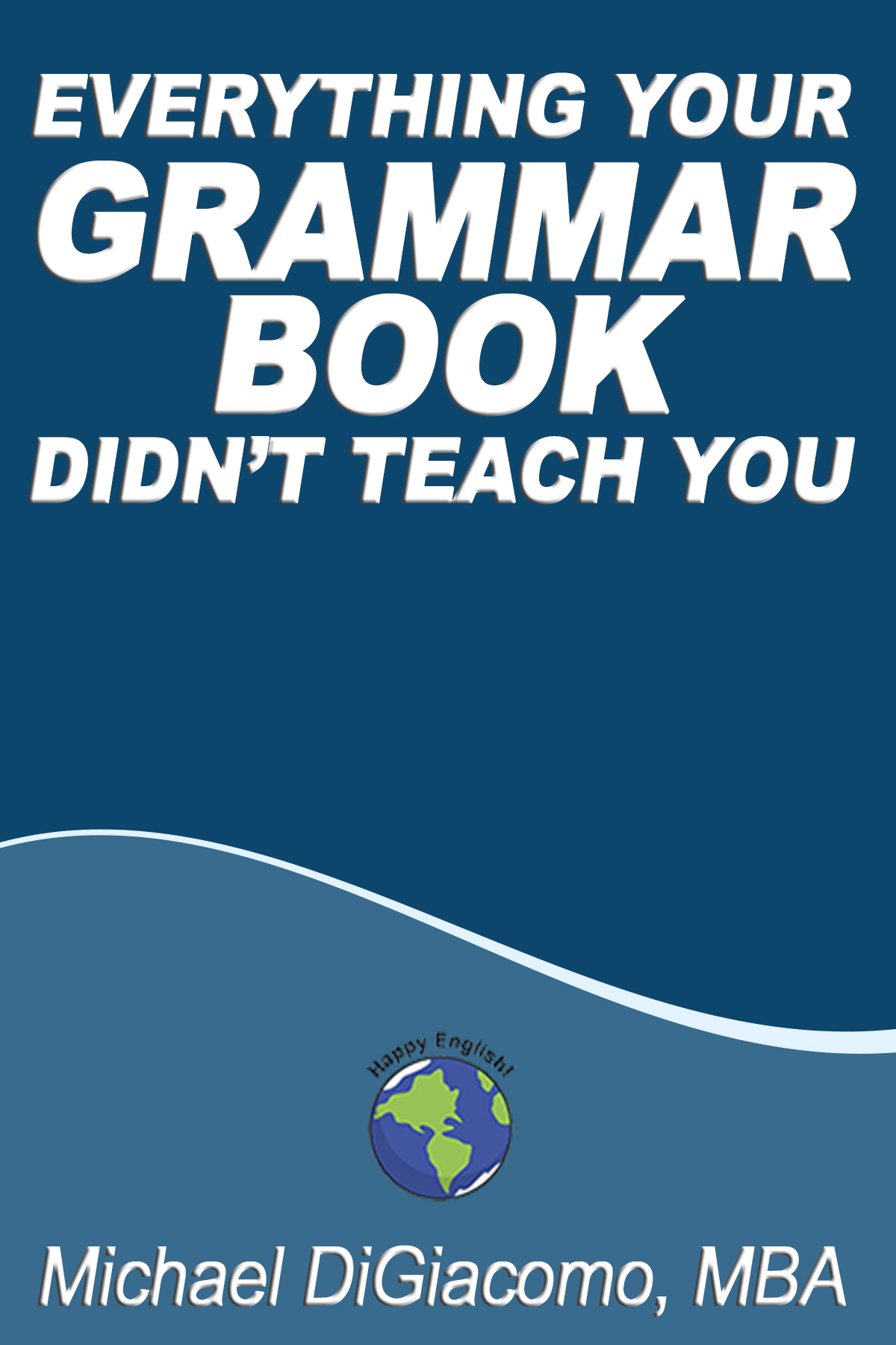
Should and Ought To
- Im not hungry because I already ate.
- Im not hungry because Ive already eaten.
- Some examples of verbs that indicate actions are go, eat, take, and do.
- Lets go to the beach.
- I eat toast every morning.
- Take a pen and some paper.
- Some examples of verbs that indicate states are be, see, feel, and recognize.
- I am happy to see you.
- I feel tired. I think Ill take a nap.
- I didnt recognize you with your new hair style.
- Countable nouns are words that represent things that you can count using numbers.
- Countable nouns can be singular, which means the word represents one single thing, like pen, desk, car, and dog.
- I have a pen .
- His car is blue.
- What kind of dog is this?
- Countable nouns can be plural, which means the word represents more than one thing, like pens, desks, cars, and dogs.
- I buy pens online.
- How many desks do we need?
- Dogs are so cute!
- Uncountable nouns are words that represent abstract ideas and things you cant count using numbers, like love, information, water, and air.
- Love is a wonderful thing in life.
- Can you give me some information ?
- I drink a lot of water every day.
- Adjectives include objective words like colors, sizes, and shapes. Some examples of these adjectives are blue , big , and round .
- Its a blue sofa.
- I have a big coffee mug.
- The round table is best for the meeting.
- Adjectives also include subjunctive words like appearance, thought, or feeling. Some examples of these adjectives are beautiful , kind , and exciting .
- Shes a beautiful woman.
- A kind man helped me cross the road.
- That was a very exciting concert last night.
- Adverbs that modify verbs indicate how the action happens.
- Jack walks slowly , but he talks quickly .
- I will seriously consider your request.
- She spoke kindly to the children.
- Adverbs that modify adjectives indicate the degree of that adjective.
- Its very cold.
- She is amazingly nice.
- It was a blazingly hot summer day.
- Adverbs that modify other adverbs indicate the degree of that adverb.
- I ran this race more quickly than I did the last race.
- She held the pencil quite delicately when she drew the picture.
- I very quietly told her that I had to leave.
- Lets go to the park tomorrow.
- The pen is on the table.
- I woke up at 5am this morning.
- Please put the paper in this box .
- Joe lives down the street from the bookshop .
- If we stand under that tree , we can escape from the rain .
- Listening to jazz helps me relax.
- I really like cooking .
- Do you prefer skiing or snowboarding ?
Font size:
Interval:
Bookmark:
Similar books «Everything Your GRAMMAR BOOK Didnt Teach You»
Look at similar books to Everything Your GRAMMAR BOOK Didnt Teach You. We have selected literature similar in name and meaning in the hope of providing readers with more options to find new, interesting, not yet read works.
Discussion, reviews of the book Everything Your GRAMMAR BOOK Didnt Teach You and just readers' own opinions. Leave your comments, write what you think about the work, its meaning or the main characters. Specify what exactly you liked and what you didn't like, and why you think so.

